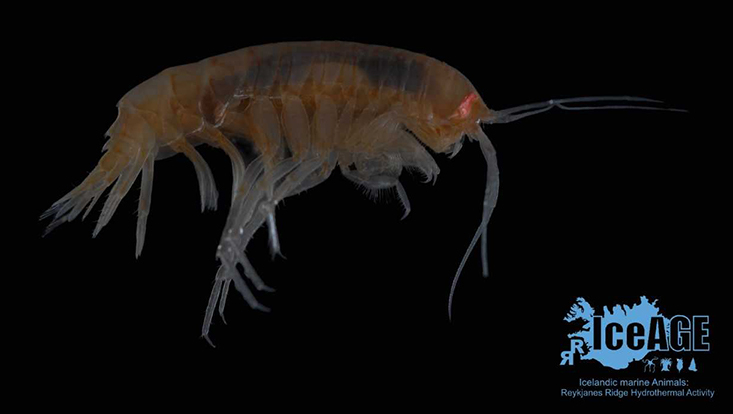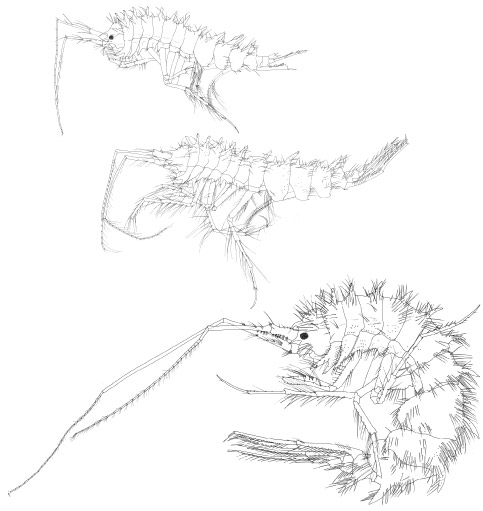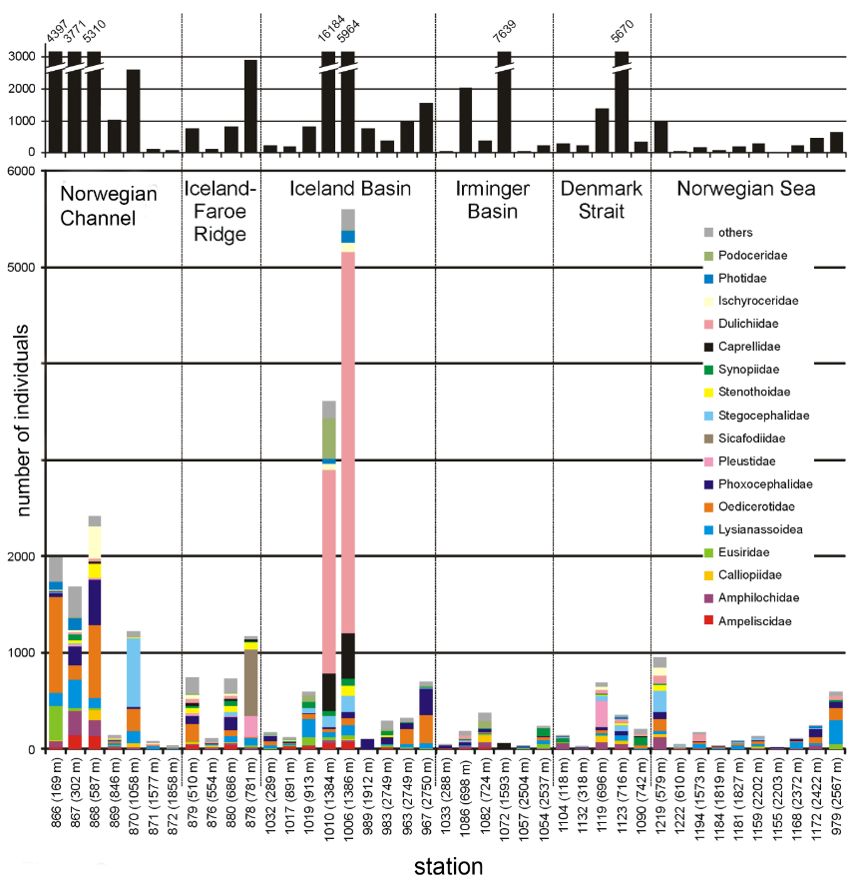IceAGE Amphipoda

The international IceAGE Programme (Icelandic marine Animals: Genetics and Ecology) studies marine areas in the northern Atlantic. This region is particularly sensitive to climate change. The study area covers a wide temperature range (from -0.9°C to 14°C). Underwater mountain ranges covered with cold-water corals run from below 3000 m to 300 m water depth. These mountains also define distinct deep-sea basins.

The preliminary evolutionary systematics of IceAGE amphipods with taxonomic, molecular phylogenetic and biogeographic analyses form the basis of the DFG project IceAGE Amphipoda, which Dr Anne-Nina Lörz, Department of Invertebrates II at CeNak, officially started in September 2018. The extensive material enables the exploration of exciting general questions- e.g. Do circum-Arctic species exist at all? How is the Norwegian fauna related to the Icelandic-Greenland fauna, can this explain biogeographical processes such as submergence? Is depth more crucial for phylogenetic relationships than horizontal distance?
During two IceAGE expeditions in 2011 and 2013, 55 stations at different depths around Iceland were sampled with an epibenthos sledge. Amphipods were found in all these samples - we have already sorted out 80 000 (!) amphipods. Amphipods, so-called amphipods, are a common, species-rich and ecologically important group of crustaceans. Due to the high sample density, Amphipoda can be used as a model taxon to study ecological variables. Sound taxonomic work is a prerequisite for further work on ecology, biogeography and biodiversity.
Integrative taxonomy is the basis for documentation and understanding of deep-sea biodiversity and its impending changes.

All the data compiled, including an interactive identification key, will be made available online to enable long-term monitoring of this sensitive region. New knowledge of the known species and the description of yet unknown species are particularly urgent in the context of the current threat to the biodiversity of the North Atlantic. This project is a synergy of publications analysing Amphipoda with different methods. The evolutionary systematics of the North Atlantic / Arctic Amphipoda will be used to understand benthic processes associated with climate change. The IceAGE Amphipoda project will provide in-depth insights into the communities of the North Atlantic, a region facing severe environmental change.

